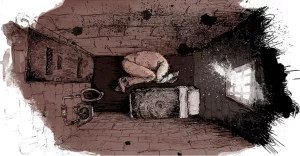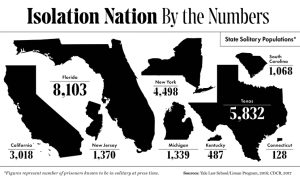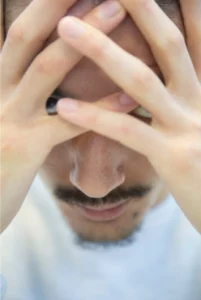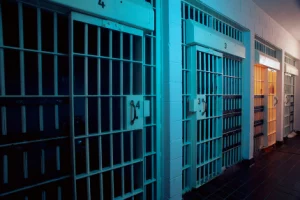
AIn February 2016, just weeks after I turned 21 years old, I was placed in solitary confinement for writing grievances within the prison system and getting positive results. To silence me and thwart my ability to inform the public of corruption and abuse within the prison, officials interrogated me, placed me in a Management Control Unit (MCU), and filed institutional charges against me to justify my confinement. I was sanctioned to more than 600 days in solitary.
State prison officials claim that New Jersey does not use solitary confinement at all, only “restrictive housing units.” The ACLU has called this a distinction without a difference, and I can personally confirm that from what I have experienced.
Once the prison administration filed institutional charges against me, my communications with the public were restricted. I was not allowed to use the phone, and I was not allowed to send mail; when I tried, envelopes would come back to me without the letter inside. As I continued to write about these violations, correctional officers planted a jailhouse knife in my cell, and I was subject to bogus charges for an alleged note about drug trafficking. Eventually, the sergeants who set me up were the only ones allowed to have contact with me. They forced me to strip naked in front of other inmates and officers of the opposite sex.
When I asked these officers why they were treating me this way, their response was: “Because you are a worthless piece of shit … who thinks that you can win … this is our house, and if I tell you to strip you fucking do it.” This type of mindset is instilled in officers, an “us vs. them” mentality that allows them to assault inmates and engage in misconduct that is contrary to the Department of Corrections’ mission.
I spent more than a month in a cage where I was exposed to constant illumination. The cage was specifically built for inmates who were gang affiliated and found with contraband like cell phones. It had no electrical switches inside of it, and there was no switch to turn the light off. It was the size of a bathroom, with no ventilation. There were steel plates on the door to prevent me from speaking to anyone, and there was a caged fence with a pad lock on it. At one point, I thought I was no longer in America.

While in this unit, I watched officers sadistically beat up inmates and deprive them of food and other necessities. I saw mentally ill inmates throw feces and other bodily fluids on each other. I saw officers spray mace on inmates and let them soak in the chemicals. Once I watched them take a young black man and force medication into him. His screams were gut-wrenching; they brought tears to my eyes.
While in solitary, inmates’ right to communicate with their families and loved ones becomes a privilege, and this privilege is restricted severely. At times it is impossible for those who are indigent to stay in contact with their families. There are no programs or rehabilitative services offered to inmates in solitary, and those who are under the age of 21 lose their right to be educated by a teacher. I was not allowed to have contact visits with my family; to attend school; to participate in any programs; or to get mental health services in a confidential setting. I was only permitted to go outside every five days and to shower every three days.
The level of mental health care inmates receive in solitary is inadequate, flawed, and deserves the attention of the public. It consists of a mental health clinician coming about once a month to the inmate’s door and saying things like: “Hey, how are you?” “Do you want to kill yourself?” “Okay, have a nice day.” The only time the mental health department seems to care about someone is when they have them on medication or when it is too late and the person has taken his life. Mental health deterioration within solitary has become an epidemic, requiring emergent intervention or resulting in over-prescribed medication.
If this is not solitary confinement, please tell me what is! I have never felt so emotionally drained and disturbed as in this foul, oppressive environment. Of course there is a need for some kind of segregation for those who break the rules of the prison. But when solitary confinement becomes so harsh and inhumane, any possibility of correcting an inmate’s behavior or rehabilitating him becomes impossible.

The Effects of Solitary
I was released from solitary confinement on November 18, 2016, almost a year earlier than expected. I did not realize the effects of solitary until I was released. In less than a day, I experienced a panic attack, and I still find myself panicking when there is too much movement going on. Sometimes I find myself staring into the air at nothing, just trying to stay calm and not focus on the movement around me. I have also found myself confining myself to my cell; sometimes I do not want to come out because I feel like I look too scruffy. Now that I am not in solitary, I can finally look in a mirror, and I am around people … and it is weird. In solitary, there are no mirrors, so you don’t see yourself. Now that I see myself, I am just like: wow, is that me? It feels very odd being close to officers without handcuffs restraining me, and I still have flashbacks to the incidents when inmates threw feces, and when officers savagely beat an inmate with batons.
When I came out of solitary, I asked the administration for some clothes and cosmetics. They told me I would have to pay for them: inmates are charged $17.99 for underclothes, and a dollar per soap.
But when inmates are in solitary, they are not paid wages. Thus, the only way to get soap, clothes, and other necessities is if family members and loved ones place money on their accounts. This places a burden on inmates and their support systems, and it feels like the prison system wants to profit off of prisoners and those who do not have anything.
I suggested to the administrator that they provide inmates with a courtesy bag or some underclothes and necessities when they are first released from solitary. His response was: “Oh, just borrow it from somebody.” One thing anyone who has a mind does not do in prison is borrow things! It can lead to conflicts … to say the least.
The Future: Ending Solitary Confinement
On October 20, 2016, the New Jersey State Assembly passed a bill strictly limiting the use of solitary confinement in the state’s prisons. On December 5, 2016, Governor Chris Christie vetoed the bill and attacked its key sponsors in his veto message, agreeing with the Department of Corrections’ claim that the state does not use solitary confinement, and thus a bill to limit it is not needed.
Despite the veto, my hope is that this bill is just the beginning of a movement to end solitary confinement for all inmates. The bill, as passed by the Assembly, required prisons and jails to use solitary confinement only as a last resort and restricted its use to 15 consecutive days or 20 days in a 2-month period. It also banned the practice for inmates who are mentally ill, pregnant, who are 21 or younger and 65 or older, or have special needs, and it required daily medical evaluations for those in solitary.

While in solitary, I was commonly told to just stop with the litigious behavior, and I would be released. One officer told me: “Minor, you’re never going to win while you’re here advocating; those people on the street are home not caring about you or the issues you care about.” It was this comment that made me realize why I must advocate.
I have written very little about what’s happening in solitary until now. Part of the reason is because of threats of retaliation and embarrassment. But I realize that the threats and embarrassment is what allows this type of torture to thrive and remain out of public view. Thus I am speaking out. I am speaking out about the recurring panic attacks I suffer when I hear officers approaching; just the sound of keys causes me anxiety. I’m speaking out about the thoughts I had at the age of 19 about giving up on my life.
I write this today because I am not “a worthless piece of shit” that the officers call me. I write this because as a 22-year-old incarcerated youth, I don’t know what else to do. I write this because I have been told “There is nothing we can do” too much. As an advocate, I believe that when the public becomes concerned, then reform can begin to happen. I find myself wondering: how is it possible that a human-rights crisis of this magnitude can carry on year after year, with impunity? Does anyone realize that solitary is destroying youth and producing its own monsters? A month ago a young man was released straight from solitary, and two weeks later he killed someone … so the thousands of dollars to keep him in solitary was used for what? And how do you tell a former inmate to respect and trust law enforcement in the community when he has just spent months, years, or decades in an environment being abused and oppressed by members of law enforcement?
Many people may not care or think that this is not important. Let me remind them that more than 80% of incarcerated men and women will someday return to society. Treating them like cattle and abusing them while they are in prison does not help them return to society. In addition to being inhumane, the conditions in prison and particularly in solitary confinement are counterproductive.
Although I was only 16 when I came to prison, I was told: “You are a man now, and you will be treated as such.” The truth is that psychologically I am a child, a child who has been hurt and is hurting, a child who deserves to be rehabilitated, not to sit in solitary confinement and be thrown away. And the further truth is that, in solitary confinement, I was not even treated as a man: I was treated as less than a human being. Solitary confinement is destroying youth, families, and communities, and as youth, families, and communities, we must demand an end to it.
